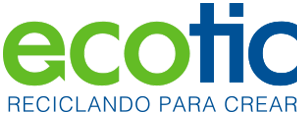
Challenges and opportunities
Andreu Vilá | Ecotic General Director
The electronics recycling sector is faced with a time of transformation. At Ecotic, we want to be part of this process, reflecting on the challenges and opportunities we face in declaring the appropriate management of WEEE to be a key aspect in the transition to a new circular economy model.
Recycling targets
Responding to market logic
In our previous Annual Report, we invited reflection on the ambitious target of collecting an average of 65% of the quantities placed on the market over the last three years, effective from 2019, and we asked ourselves if this responded to the logic of the sector.
Unfortunately, experience in various European Union countries seems to support the validity of our doubts. Figures for the quantities placed on the market and of waste generation indicate that recycling levels remain far below this target of 65%.
As we anticipated, the main reasons for this are the low rate of replacement of devices such as air conditioning equipment or solar panels, with useful life spans significantly higher than those of other equipment, or that small devices such as smartphones are not recycled as users tend to accumulate in their homes.
We again invite debate on whether a viable alternative would be to adopt a flexible model, as occurs in other European Union countries, allowing a more realistic adjustment of the targets to the realities and dynamics of the market.
New regulations
Electronic Platform and Framework Directive
The next few months will undoubtedly be marked by regulatory changes, one of which is the development process of the Ministry for Ecological Transition’s Electronic Platform for WEEE Management, which will follow the submission period once the informative phase has ended.
It appears likely that there will be a delay to the forecast of July 2019 as a starting date, with it not taking effect until January 2020. This development will determine the replacement of OfiRAEE, the current SCRAP coordination office by the new Collections Assignment Office, carried out under the extended responsibility of the producer based on the information from the Electronic Platform, and which must integrate both all SCRAP and all Individual Systems.
It appears likely that there will be a delay to the forecast of July 2019 as a starting date, with it not taking effect until January 2020. This development will determine the replacement of OfiRAEE, the current SCRAP coordination office by the new Collections Assignment Office, carried out under the extended responsibility of the producer based on the information from the Electronic Platform, and which must integrate both all SCRAP and all Individual Systems.
A reflection in regard to individual systems: does it make sense for a producer to be considered an individual system for the management of the collection and treatment of their domestic WEEE? It seems appropriate for this modality of Extended Producer Responsibility for the producer to be responsible for managing the removal of industrial-type equipment, but it seems more questionable in the case of domestic WEEE.
On the other hand, we must remain attentive to the implementation of the Waste Framework Directive, which is currently being carried out in our country. This process will involve modifications to the current Waste and Contaminated Soils Law 22/2011, updating among other aspects the legal framework of waste production and management, and establishing the obligations of producers and managers. Undoubtedly, the electronics recycling sector will be well aware of such modifications.
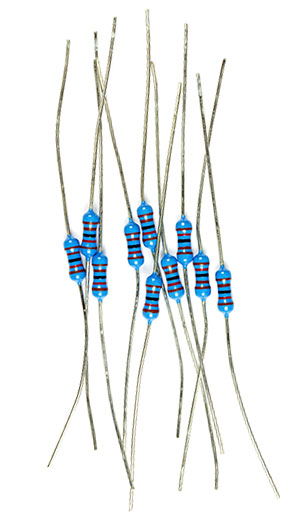
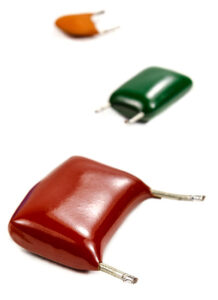
Growth in waste
Extension of scope
The current trend is that WEEE, spurred on by technological innovation and the rapid replacement of equipment, will grow at a rate three times higher than other urban solid waste, and stand as one of the great environmental challenges for which society requires an adequate response.
This growth in WEEE will require that prevention measures in their generation, preparation for reuse and recycling with environmental guarantees are sufficient to provide an adequate response and favour a more efficient use of resources.
We should also mention the recent extension of the scope of the Royal Decree 110/2015, which incorporates all electrical and electronic devices, except for those explicitly excluded.
Thus equipment such as household florescent light bulbs, antennas and cables, strips, domotic products, radio frequency tags (RFID) and electric motors will be incorporated in the scope.
In Ecotic we are convinced that, in addition to being an important challenge, this expansion represents a window of opportunity to continue consolidating the growth in the volume of waste that we manage, and therefore increasing the rates of WEEE recovery in our country.
Improvements in traceability
A new Radio Frequency Identification system
As a result of this growth, improvements in the control and traceability of WEEE have sparked an important debate in the sector over the past few years. In Ecotic we have worked to develop and implement Radio Frequency Identification (RFID) systems using labels that permit us to identify residues at source.
Now a reality, this improvement allows us to guarantee detailed monitoring of the entire management cycle. This important advance is being implemented in a growing number of companies, collection points and handlers and will contribute significantly to improving the control and traceability of waste, avoiding irregular flows that escape the appropriate established channels.
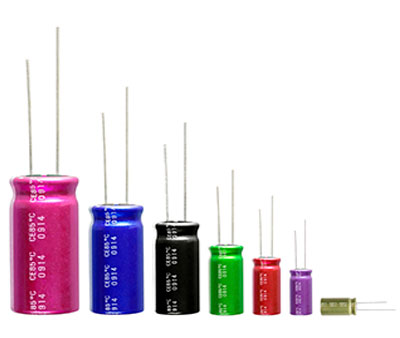
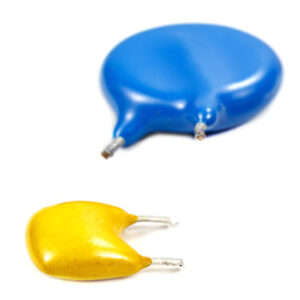
Culture of sustainability
The need to raise awareness among users and professionals
Raising the awareness of users and professional groups and providing them with information and is one of Ecotic’s principal lines of approach. We are convinced that an improvement in recycling rates will not be possible without the commitment of citizens and companies, so we will continue to work to promote a genuine culture of sustainability.
To this end, we will continue with initiatives such as ‘Ecoinstaladores’, a training programme for distributors and installers of equipment, ‘Digitalización Sostenible’, an awareness raising campaign aimed at users to increase the recovery of difficult to access waste such as small appliances, and ‘Otro Final es Posible’, an educational campaign focused on influencing the values of young children, the consumers of tomorrow.
We will also continue to collaborate with Public Administrations and other SCRAP in awareness raising campaigns that promote change in consumption habits, extending the useful life of appliances and promoting their appropriate recovery, so that we can continue advancing in WEEE prevention and recovery.
We are convinced that such a change in consumer habits goes beyond the field of electronic waste and is the key to the development of a true circular economy that would modify the production model. It is not merely its own sustainability that is dependent on this, but that of something much greater, a heritage shared by all: our planet.
